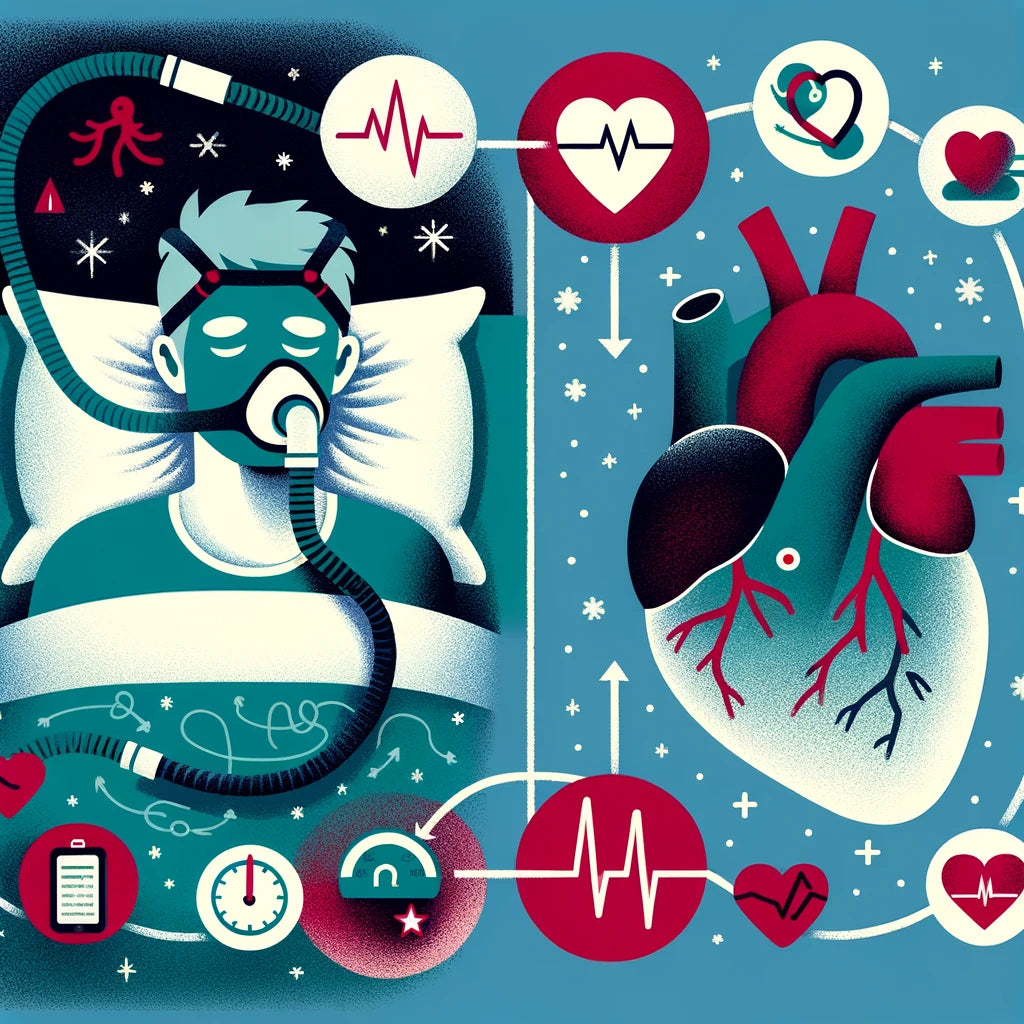Sleep apnea is a common yet serious sleep disorder that affects millions of people worldwide. Characterized by repeated interruptions in breathing during sleep, sleep apnea can have far-reaching health consequences if left untreated. One of the most significant and concerning connections is between sleep apnea and heart disease. In this blog post, we will explore how sleep apnea impacts heart health, the underlying mechanisms of this connection, and the importance of diagnosis and treatment for preventing cardiovascular issues.
Understanding Sleep Apnea
Sleep apnea is marked by frequent pauses in breathing during sleep, often resulting in fragmented and poor-quality sleep. The two main types of sleep apnea are:
- Obstructive Sleep Apnea (OSA): The most common form, OSA occurs when the muscles in the throat relax excessively, causing the airway to become partially or completely blocked.
- Central Sleep Apnea (CSA): Less common, CSA happens when the brain fails to send proper signals to the muscles that control breathing.
How Sleep Apnea Affects Heart Health
Research has shown a strong link between sleep apnea and various cardiovascular conditions. Here are some key ways in which sleep apnea can impact heart health:
Increased Blood Pressure
Frequent interruptions in breathing lead to repeated drops in blood oxygen levels. This causes the body to release stress hormones, which increase heart rate and blood pressure. Chronic high blood pressure (hypertension) is a major risk factor for heart disease and stroke.
Strain on the Heart
Each pause in breathing forces the heart to work harder to pump oxygenated blood throughout the body. Over time, this added strain can weaken the heart muscle, leading to conditions such as left ventricular hypertrophy (thickening of the heart walls) and heart failure.
Increased Risk of Arrhythmias
Sleep apnea is associated with an increased risk of abnormal heart rhythms, or arrhythmias. These irregular heartbeats can lead to more serious conditions, such as atrial fibrillation, which is linked to an increased risk of stroke.
Inflammation and Endothelial Dysfunction
The repeated oxygen deprivation caused by sleep apnea can lead to inflammation and damage to the blood vessels' inner lining (endothelial dysfunction). This contributes to the development of atherosclerosis (narrowing of the arteries), which can increase the risk of heart attacks and other cardiovascular events.
Recognizing the Symptoms
Early recognition of sleep apnea symptoms is crucial for preventing its cardiovascular impacts. Common symptoms include:
- Loud, chronic snoring
- Pauses in breathing during sleep
- Gasping or choking during sleep
- Excessive daytime sleepiness
- Morning headaches
- Difficulty concentrating
- Irritability or mood changes
The Importance of Diagnosis and Treatment
Diagnosing and treating sleep apnea is essential for protecting heart health and overall well-being. Here are some steps to take:
Seek Medical Evaluation
If you suspect you have sleep apnea, consult a healthcare professional. A sleep study, conducted either in a sleep center or at home, can help diagnose the condition and determine its severity.
Treatment Options
Effective treatment for sleep apnea can significantly reduce the risk of cardiovascular complications. Common treatment options include:
- Continuous Positive Airway Pressure (CPAP) Therapy: CPAP involves wearing a mask connected to a machine that delivers a continuous flow of air, keeping the airway open during sleep.
- Oral Appliances: Dental devices can help keep the airway open by repositioning the jaw or tongue.
- Lifestyle Changes: Weight loss, smoking cessation, and avoiding alcohol and sedatives before bedtime can help improve sleep apnea symptoms.
- Surgery: In some cases, surgical procedures may be recommended to address anatomical issues contributing to sleep apnea.
Conclusion
The connection between sleep apnea and heart disease underscores the importance of recognizing and treating this sleep disorder. By addressing sleep apnea through appropriate diagnosis and treatment, individuals can reduce their risk of cardiovascular issues and improve their overall health. If you suspect that you or a loved one may have sleep apnea, don't hesitate to seek medical advice and explore the available treatment options.

